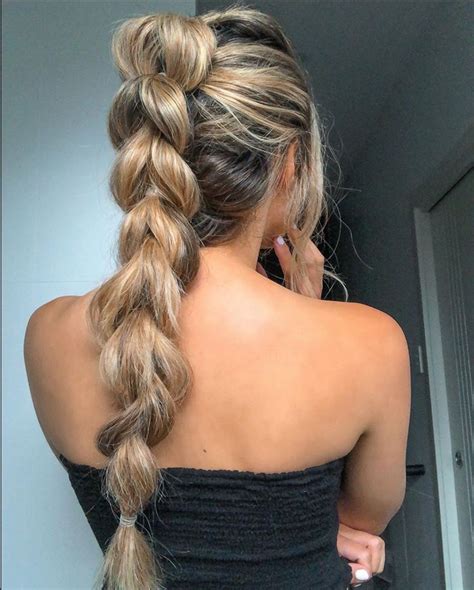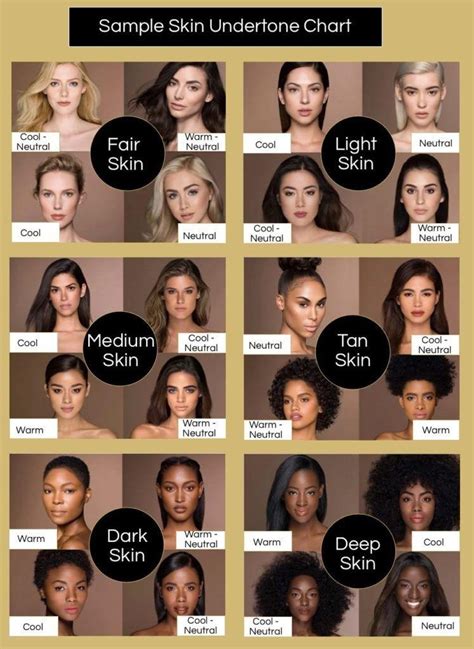
Introduction
Choosing the right hair color for your skin tone can be a daunting task, especially if you’re not sure where to start. There are so many factors to consider, such as your eye color, skin undertone, and personal style.
Fear not! In this blog post, we’ll divulge the secrets of hair color matching and reveal the perfect hair color for your skin tone in an unparalleled 5-step guide. By understanding the science behind hair color and skin tone, you’ll be able to confidently flaunt a radiant and harmonious look.
The Science Behind Hair Color Matching
Hair color and skin tone are intimately entwined, each influencing the other’s aesthetic appeal. Understanding the science behind this interplay is crucial for achieving a flawless match.
Melanin: The Master Pigment
Melanin is the pigment responsible for both hair color and skin tone. It comes in two forms: eumelanin (dark brown or black) and pheomelanin (red or yellow). The balance of these pigments determines your unique hair and skin coloration.
Skin Undertone: The Hidden Hue
Your skin’s undertone, whether warm, cool, or neutral, significantly impacts hair color selection.
- Warm undertones: Have yellow, peachy, or golden hues.
- Cool undertones: Exhibit pink, red, or bluish undertones.
- Neutral undertones: Combine both warm and cool hues, creating a balanced complexion.
5-Step Guide to Finding Your Perfect Hair Color
1. Determine Your Skin Undertone
- Wrist Test: Examine the veins on your wrist under natural light. Blue or purple veins indicate a cool undertone, while green veins suggest a warm undertone. If you can’t decide, you likely have a neutral undertone.
- Sun Reaction: Notice how your skin reacts to the sun. If it burns easily and turns red, you have a cool undertone. Those who tan easily and develop golden hues have a warm undertone.
- Jewelry Test: Gold jewelry complements warm undertones, while silver suits cool undertones. If both colors look good on you, you have a neutral undertone.
2. Consider Your Eye Color
- Brown Eyes: Warm hair colors, such as golden blonde, caramel, and auburn, enhance brown eyes.
- Blue Eyes: Cool hair colors, including platinum blonde, ash brown, and icy black, bring out the vibrancy of blue eyes.
- Green Eyes: Both warm and cool hair colors can flatter green eyes. Experiment with shades like honey blonde, chestnut brown, and burgundy.
3. Analyze Your Hair Texture
- Fine Hair: Lighter colors, such as blonde and light brown, can add volume and movement to fine hair.
- Medium Hair: Most hair colors suit medium hair textures, so you have more flexibility in choosing a shade.
- Thick Hair: Darker colors, like black, dark brown, and burgundy, can help tame thick hair and make it appear less bulky.
4. Consider Your Personal Style
- Classic and Sophisticated: Timeless shades like black, dark brown, and blonde will never go out of style.
- Edgy and Bold: Experiment with vibrant colors like red, purple, or blue to express your individuality.
- Natural and Earthy: Embrace your natural hair color or opt for shades like brown, honey, or auburn that enhance your skin tone.
5. Consult a Professional
If you’re still unsure about which hair color is right for you, don’t hesitate to consult a professional hairstylist. They can assess your skin tone, eye color, and hair texture and provide personalized recommendations.
Common Mistakes to Avoid
- Ignoring Your Skin Undertone: Choosing a hair color that clashes with your undertone can create a disharmonious look.
- Going Too Dark or Too Light: Opting for shades that are too dark or too light can wash out your skin tone or make you look older.
- Overusing Bleach: Excessive bleaching can damage your hair and make it more prone to breakage.
- Not Considering Your Eye Color: Choosing a hair color that doesn’t complement your eye color can diminish their natural beauty.
- Following Trends Blindly: While hair color trends can be inspiring, it’s important to choose a shade that suits your individual skin tone and style.
Table 1: Hair Color Recommendations for Warm Skin Undertones
| Hair Color | Skin Tones |
|---|---|
| Golden Blonde | Yellow, peachy, golden |
| Caramel | Honey-colored, olive |
| Auburn | Reddish, warm |
| Copper | Rusty, warm |
| Chestnut Brown | Warm, brown |
Table 2: Hair Color Recommendations for Cool Skin Undertones
| Hair Color | Skin Tones |
|---|---|
| Platinum Blonde | Pink, red, bluish |
| Ash Brown | Purple, bluish |
| Icy Black | Pale, cool |
| Silver | Grayish, cool |
| Rose Gold | Pinkish, cool |
Table 3: Hair Color Recommendations for Neutral Skin Undertones
| Hair Color | Skin Tones |
|---|---|
| Honey Blonde | Warm and cool |
| Beige Blonde | Yellow and blue |
| Caramel | Honey and peach |
| Burgundy | Red and brown |
| Chocolate Brown | Warm and cool |
Table 4: Professional Hair Stylist Recommendations
| Skin Undertone | Hair Color Recommendations |
|---|---|
| Warm | Golden blonde, caramel, auburn, copper, chestnut brown |
| Cool | Platinum blonde, ash brown, icy black, silver, rose gold |
| Neutral | Honey blonde, beige blonde, caramel, burgundy, chocolate brown |
Conclusion
Finding the perfect hair color for your skin tone is a journey of self-discovery and experimentation. By following the 5-step guide and avoiding common mistakes, you can unlock a harmonious and radiant look that celebrates your unique beauty. Remember, the key to success lies in understanding the science behind hair color matching and
